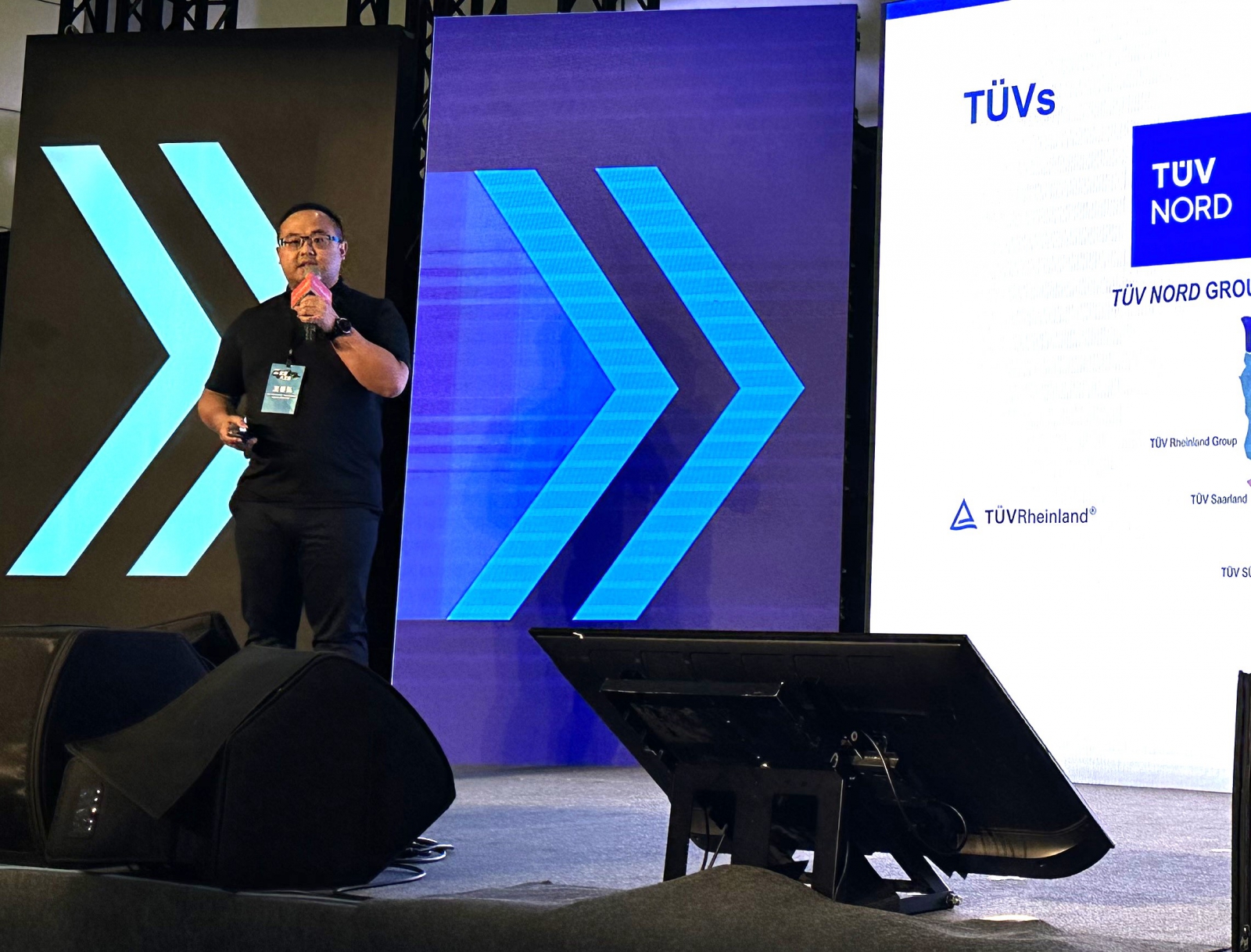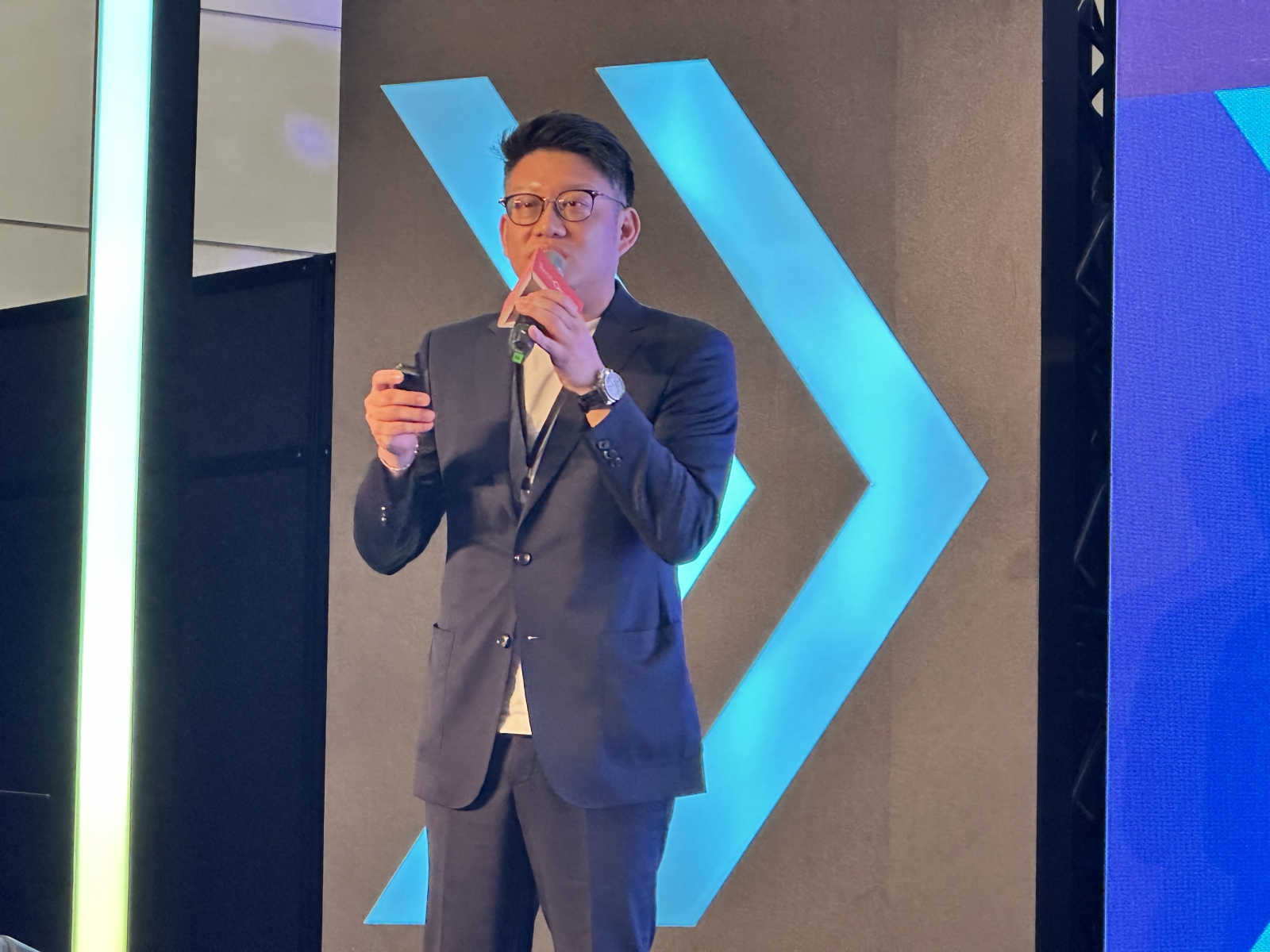Verification agencies, consulting firms, and agri-food industry players of Taiwan gathered at a forum held on March 28 to share insights on corporate sustainability and carbon reduction from three different perspectives.
Titled "From carbon reduction to zero emissions: Revealing key strategies for business net zero transition," the forum was one of the eight forums and seminars held during the Taiwan International Machine Tool Show (TMTS) running from March 27 to 31 in Taipei.
.jpg)
The Taiwan International Machine Tool Show held the green transition forum. (Photo: Lin Bo-yu)
According to Wang Shan-hung (王善弘), director of green energy and sustainability services at TÜV SÜD, the global carbon market is growing rapidly, and both the mandatory and voluntary markets reached record highs in 2022, with 166 million tonnes of carbon credits retired. It is anticipated that the voluntary market will continue to grow significantly and surge five-fold by 2030, reaching a value of USD 10 to 40 billion
Taiwan's carbon trading is relatively small in scale and lagging behind other neighboring countries, such as China, Japan, and South Korea, where carbon trading has involved international carbon credits, he said.
With rich experience in the carbon market, TÜV SÜD has been participating in the EU Emissions Trading System (EU ETS), Clean Development Mechanism (CDM), Gold Standard (GS), Verified Carbon Standard (VCS) and other major carbon reduction certification methods since 2005.
Led by the United Nations, a new carbon credit mechanism is expected to develop under Article 6.4 of the Paris Agreement within the next three to five years, requiring accreditation of supervisory bodies for carbon credit transfers aside from the consent of both parties, said Wang. In addition, he believed that mechanisms such as the GS and VCS may undergo integration in the next few years.

Director Wang Shan-hung of green energy and sustainability services at TÜV SÜD (Photo: Lin Bo-yu)
The carbon market has a relatively short history of development and there is plenty of terms that needs to be explained, said Chang Chia-hung (張嘉宏), executive director of Sustainability and Climate Change Services at PwC, adding that Taiwan should align itself with international standards, particularly the Science Based Targets Initiative (SBTi), which explicitly requires companies to outline their carbon reduction pathway for five to ten years.
Citing data from EMO Hannover, a German machine tool exhibition, he pointed out that more than 90% of carbon emissions from the machine tool industry are concentrated in Scope 3 emissions, and that up to 80% of carbon emissions could be reduced if sustainable concepts were adopted at the product design phase.
Chang categorized the risks of industry transition into four dimensions: carbon pricing, markets, regulation and investment.
In terms of investment, he found that many financial institutions began adopting the green taxonomy to classify industries, and that companies, in addition to shifting their investment direction, may be compelled to fit into certain categories due to customer demand.
He believes that now is the critical time to accelerate decarbonization, which will need to reach an annual rate of 17.2%, or seven times faster than in 2022, if net zero is to be achieved by 2050.
He also suggested that the machine tool industry assist its customers in increasing their "avoided emissions" by providing solutions through electromechanical equipment to facilitate decarbonization and enhance product competitiveness.

Chang Chia-hung, executive director of Sustainability and Climate Change Services at PwC (Photo: Lin Bo-yu)
Nice Garden's CEO, Wu Ji-heng (吳季衡), shared his experience in the green transition process from the perspective of the agri-food supply chain, specifically climate action under the UN Sustainable Development Goals (SDGs).
Through strategies such as energy management, equipment replacement, and data analysis, the company expects to save 73,965 kWh of electricity per year and reduce GHG emissions by 36.5 tonnes of CO2 equivalent.
Last year, Nice Garden's total solar power generation reached 800,000 kWh," said Wu, adding that the company's tourist factory Nextland has obtained LEED Gold certification.
In addition, its pork brand became the first in Taiwan to receive ISO 14067 carbon footprint certification, and some of the factories will adopt the ISO 14064:2018 carbon inventory standard starting this year.

Nice Garden's CEO Wu Ji-heng (Photo: Lin Bo-yu)


